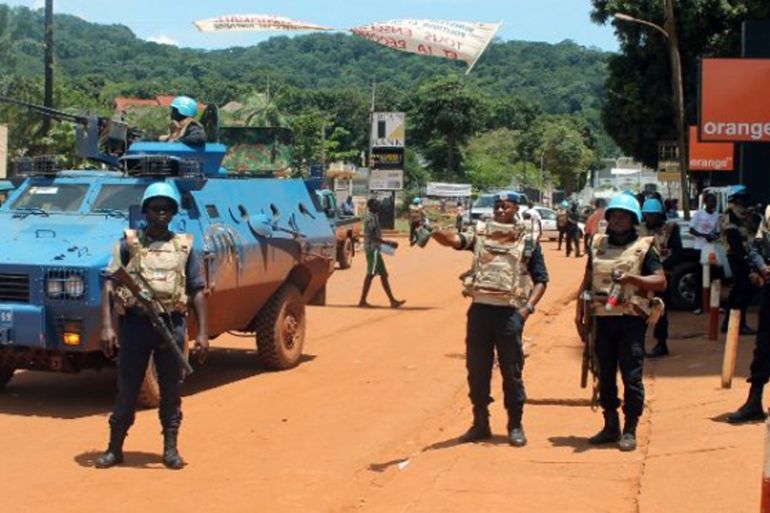HRW: Muslim herders held captive by militia in CAR
Human Rights Watch demands intervention as year-long kidnapping of herders continues in Central African Republic.

At least 42 Muslim Fulani herders, mostly women and girls, are still being held by anti-Balaka fighters in the Central African Republic after being captured more than a year ago, Human Rights Watch has said.
In a statement released on Wednesday, the international advocacy group said those held risked sexual abuse at the hands of their captors and called on the United Nations peacekeepers and the CAR government to act.
Keep reading
list of 4 items‘Unconscionable’: US sends dozens to Haiti on deportation flight
Ten years after Chibok girls kidnapping: One woman’s struggle to move on
Gunmen kill at least 11 in two attacks in Pakistan’s Balochistan
“Holding civilians captive, killing children, and sexually enslaving women and girls are shocking tactics by these anti-Balaka and amount to war crimes,” said Lewis Mudge, Africa researcher at Human Rights Watch.
“UN peacekeepers and government officials who have already taken bold steps to free one group of ethnic Fulani should urgently intervene to free the others and arrest their captors.”
The Fulani, one of the most widely dispersed and culturally diverse ethnic groups of Africa are bound together by the common language of Fulfulde, as well as by some basic elements of Fulbe culture, such as the pulaaku, a code of conduct common to all Fulani groups.
Religious violence
HRW’s statement on Wednesday comes three days after the UN said they had rescued 21 nomadic Muslim herders from militias in the country’s west. At the time, the UN said that up to 100 more were still being held.
The herders were captured about a year ago near the town of Yaloke during religious violence unleashed after Muslim Seleka rebels seized power in the majority Christian country in 2013, provoking a backlash from local militia groups.
A spokeswoman for the UN refugees agency (UNHCR) said the two men, six women and 13 children had been freed after negotiations involving the UN peacekeeping mission (MINUSCA) and local authorities.
“Three of the six women were raped and are in a state of shock, totally traumatised,” said Dalia Alachi, spokeswoman for UNHCR.
HRW said on Wednesday that members of one family told the group of their 14 months in captivity in Pondo, a village in the southwest.
The anti-Balaka killed two boys, aged about 6 and 7, and raped three young women and girls, one of whom became ill and died in captivity. Her year-old baby died of malnutrition.
Thirteen surviving members of the family were released on April 4 and 5 following the intervention of local authorities and the UN peacekeeping mission in the country.
The anti-Balaka are an armed group who have killed and targeted thousands of Muslims since 2013.
Despite an improving situation in some towns of Central African Republic, Alachi said simmering violence persisted in rural areas, with most of the abuses going undocumented.